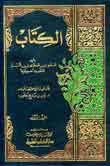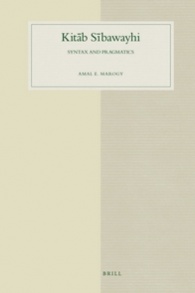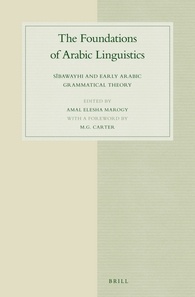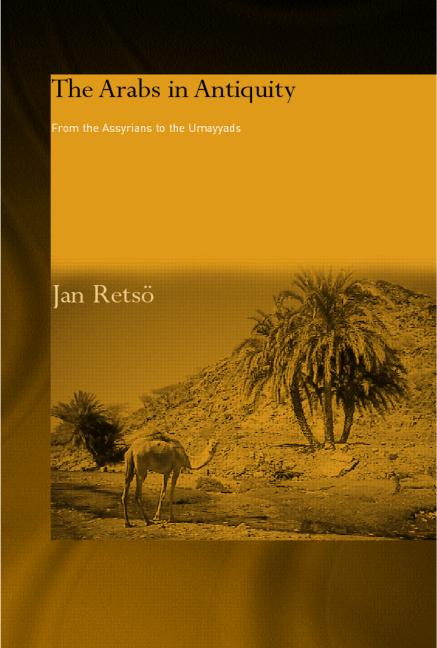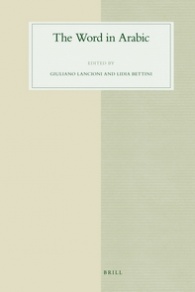- Homeالصفحة الرئسية
Status 30 Sept 2012: new "Status" tab; maximal spelling; quotation markup; notes on fonts; usable Table of Contents; etc. For details click on the "Status" tab.
Welcome to Sibawayhi.Org. This website is devoted the study of the Kitāb of Sībawayhi.
Sībawayhi (أبو بشر عمرو بن عثمان بن قنبر) was born in Persia, went to Basra to study, and died young, sometime around 180/796. The Kitāb (literally "Book") is his sole literary work. Consisting of 571 articles running to some 1,000 pages, it is a detailed account of "the speech of the Arabs" (كلام العرب). It is probably the first literary composition expressly intended for public dissemination as a book in the history of Arabic-Islamic civilization.
The Kitāb quickly became established as the last word on Arabic. It remains to this day the authoritative voice on Arabic grammar. In this respect Sībawayhi and his Kitāb are analogous to Euclid and his Elements in the European tradition.
Why study the Kitāb today? The brief answer is the Kitāb is the single most important piece of literature in the history of Islamic civilization after the Qurān. Language is at the very core of Islam; in the Kitāb, Sībawayhi left a record of how the Arabs of his day thought about language; and later generations of Muslims (and non-Muslim Arabic speakers) learned their Arabic at the feet of the master, Sībawayhi, by studying his Kitāb or one of the thousands of manuals based on it. The tradition produced a seemingly endless flow of books, manuals, guides, etc. about Arabic, but they were all based on the Kitāb. So for students of Arabic and Islam, mastery of the Kitāb lays the foundation for study of the tradition.

But there is another more profound reason to study the Kitāb, a reason that has little to do with Islamic intellectual history or even Arabic per se and everthing to do with contemporary intellectual life. Struggling with the text of the Kitāb is a profoundly therapeutic exercise; it takes the student directly to the most fundamental questions we can ask about the nature of language, meaning, and understanding. For arriving at an understanding of the text as Sībawayhi and his contemporaries would have understood it involves far more than just deciphering the ``literal'' meaning of the text. Western (European) culture, like every culture, rests on a host of presuppositions about the world and language. These mostly implicit commitments are so deeply embedded as to be practically invisible to those brought up within the tradition. For example, the West has traditionally thought of language as made of consonts, vowels, words, and so forth, and variously as representational, instrumental, etc.; and in general western scholars have not shied away from claiming universality for such notions. The Kitāb exposes such notions as fundamentally historical creatures, dependent for their intelligibility on particular times, places, and traditions.
Approach the Kitāb without an awareness of your implicit commitments and you will surely misread it. For the implicit presuppositions of Sībawayhi differ radically from those of the Western tradition, both ancient and modern. It is first and foremost an Arabic description of Arabic. The Arabic of Sībawayhi's day, like any historically situated linguistic practice, came with its own unique set of conceptual resources and constraints. What Sībawayhi had to say in Arabic about Arabic cannot be expressed in ordinary English. It can be expressed - it is not radically inaccessible to the English speaker - but not by any sort of direct simple translation. Grappling with the Kitāb is therapeutic in this sense, that it forces the student to come to an awareness of the implicit presuppositions that inform his or her reading. In particular, it demands an awareness of how the expressive resources and constraints of one's own language subtly condition one's grasp of what language is and how it works.
Once you have mastered the Kitāb you will find it difficult to take seriously the grand universalist pronouncements of Western Poobahs of modern linguistics.

This website is designed to facilitate the study of the Kitāb. It is a labor of love, not profit, although I hope to find a way to generate some revenue to finance the project eventually; it will be years before the website does all the things I plan for it - indices, hyperlinks, etc. Since this is a Beta version intended for testing the technical implementation and design, it currently it contains minimal content. But the planned outline will be evident.
The exception is that a complete (albeit unedited) text of the Kitāb is available on the "Text" subtab of "The Kitāb" tab. It also contains references to the page numbers of each article in the three main published editions, which should be useful to anybody checking references in papers on Sībawayhi.

Since this is a beta version, I ask that you run it through its paces and email editor at sibawayhi.org with any bug reports or suggestions. I would also appreciate it if you would send me a postcard from your local area by snailmail. You can send it to : Gregg Reynolds, 5075 N. Wolcott Apt 2, Chicago IL 60640, USA. Thanks!
أهلا وسهلا إلى موقع سيبويه
- Introمقدمة
Introduction...
- Guideلمحة عامة
- Backgroundالخلفية
Something about the background here: the man and his milieu, etc....
- The Kitābالكتاب
- Legacyالتراث
- Biblioالبيبليوغرافيا
General and specific bibliographies.
- Statusالوضع
Status Updates
Welcome. This is a Beta (test) version of the site, which I'm making available in order to test the design and find bugs. You are welcome to poke around, on one condition: that you provide feedback to editor at sibawayhi.org. Also, please do not link to this page; instead link to the home page. Thanks!
أهلا وسهلا

Updates to the site will be announced on Twitter.
أهلا وسهلا

Where's the translation? A previous version of this site contained preliminary translations of a dozen or so articles. They are currently under revision and will be republished sooner or later.
أهلا وسهلا

You may also be interested in two other (independent) Sibawayhi-related projects:
The Sībawiki Project (Carter, Matveev, Edzard)
Journal of Arabic Linguistics Tradition (Solomon Sara's translation-in-progress)


Status 30 Sept 2012: new "Status" tab; maximal spelling; quotation markup; notes on fonts; usable Table of Contents; etc. For details click on the "Status" tab.
Welcome to Sibawayhi.Org. This website is devoted the study of the Kitāb of Sībawayhi.
Sībawayhi (أبو بشر عمرو بن عثمان بن قنبر) was born in Persia, went to Basra to study, and died young, sometime around 180/796. The Kitāb (literally "Book") is his sole literary work. Consisting of 571 articles running to some 1,000 pages, it is a detailed account of "the speech of the Arabs" (كلام العرب). It is probably the first literary composition expressly intended for public dissemination as a book in the history of Arabic-Islamic civilization.
The Kitāb quickly became established as the last word on Arabic. It remains to this day the authoritative voice on Arabic grammar. In this respect Sībawayhi and his Kitāb are analogous to Euclid and his Elements in the European tradition.
Why study the Kitāb today? The brief answer is the Kitāb is the single most important piece of literature in the history of Islamic civilization after the Qurān. Language is at the very core of Islam; in the Kitāb, Sībawayhi left a record of how the Arabs of his day thought about language; and later generations of Muslims (and non-Muslim Arabic speakers) learned their Arabic at the feet of the master, Sībawayhi, by studying his Kitāb or one of the thousands of manuals based on it. The tradition produced a seemingly endless flow of books, manuals, guides, etc. about Arabic, but they were all based on the Kitāb. So for students of Arabic and Islam, mastery of the Kitāb lays the foundation for study of the tradition.

But there is another more profound reason to study the Kitāb, a reason that has little to do with Islamic intellectual history or even Arabic per se and everthing to do with contemporary intellectual life. Struggling with the text of the Kitāb is a profoundly therapeutic exercise; it takes the student directly to the most fundamental questions we can ask about the nature of language, meaning, and understanding. For arriving at an understanding of the text as Sībawayhi and his contemporaries would have understood it involves far more than just deciphering the ``literal'' meaning of the text. Western (European) culture, like every culture, rests on a host of presuppositions about the world and language. These mostly implicit commitments are so deeply embedded as to be practically invisible to those brought up within the tradition. For example, the West has traditionally thought of language as made of consonts, vowels, words, and so forth, and variously as representational, instrumental, etc.; and in general western scholars have not shied away from claiming universality for such notions. The Kitāb exposes such notions as fundamentally historical creatures, dependent for their intelligibility on particular times, places, and traditions.
Approach the Kitāb without an awareness of your implicit commitments and you will surely misread it. For the implicit presuppositions of Sībawayhi differ radically from those of the Western tradition, both ancient and modern. It is first and foremost an Arabic description of Arabic. The Arabic of Sībawayhi's day, like any historically situated linguistic practice, came with its own unique set of conceptual resources and constraints. What Sībawayhi had to say in Arabic about Arabic cannot be expressed in ordinary English. It can be expressed - it is not radically inaccessible to the English speaker - but not by any sort of direct simple translation. Grappling with the Kitāb is therapeutic in this sense, that it forces the student to come to an awareness of the implicit presuppositions that inform his or her reading. In particular, it demands an awareness of how the expressive resources and constraints of one's own language subtly condition one's grasp of what language is and how it works.
Once you have mastered the Kitāb you will find it difficult to take seriously the grand universalist pronouncements of Western Poobahs of modern linguistics.

This website is designed to facilitate the study of the Kitāb. It is a labor of love, not profit, although I hope to find a way to generate some revenue to finance the project eventually; it will be years before the website does all the things I plan for it - indices, hyperlinks, etc. Since this is a Beta version intended for testing the technical implementation and design, it currently it contains minimal content. But the planned outline will be evident.
The exception is that a complete (albeit unedited) text of the Kitāb is available on the "Text" subtab of "The Kitāb" tab. It also contains references to the page numbers of each article in the three main published editions, which should be useful to anybody checking references in papers on Sībawayhi.

Since this is a beta version, I ask that you run it through its paces and email editor at sibawayhi.org with any bug reports or suggestions. I would also appreciate it if you would send me a postcard from your local area by snailmail. You can send it to : Gregg Reynolds, 5075 N. Wolcott Apt 2, Chicago IL 60640, USA. Thanks!
أهلا وسهلا إلى موقع سيبويه
Prefaceمقدمة
Preface...
Introductionمقدمة
Intro...

More intro...
Organization of this workنظام هذا الموقع
Prefaceمقدمة
Preface...
Guideدليل
Guide ...
Backgroundالخلفهة
Background...
The Kitābالكتاب
The Kitāb...
Organization of this work...
Introduction...
Introductionمقدمة
It's easy to give a facile account of what the Kitāb is: a grammar, a detailed description of Arabic, a theory of Arabic, etc. But these are not very satisfactory answers. The Kitāb does not fit any of the familiar genres in the Western literary tradition. There is nothing even remotely like it in the relatively sparse Western literature about language, ancient or modern.

Sībawayhi is hard to categorize as well. Among Western writers, he is routinely referred to as a linguist, grammarian, philologist, or the like. But these labels are more harmful than helpful. He could not have been a linguist in the modern sense of the word; linguistics as a first-class academic discipline is barely 100 years old. It depends critically on the formation of particular ontological notions about ``Language'' as an object of study, notions which are completely alien to Sībawayhi's way of thinking. Philology has historically focussed exclusively on written texts. But Sībawayhi was writing at the dawn of the Arabic literary tradition; Schoeler has argued that the Kitāb is the first book expressly composed for publication in the history of the tradition. As the text of the Kitāb makes abundantly clear, Sībawayhi's exclusive focus was on نحو كلام العرب, the "way of the speech of the Arabs". If he was a philologist it was only in the literal sense of the term, a lover of speech.

Nor was Sībawayhi a grammarian. The concept of grammar is a Western invention, inseparable - as its etymology suggests - from the sort of literacy that has been central to Western thought for millenia. Grammar is fundamentally about written language, and modern attempts to extend it to cover all of language have generally failed to escape its entanglement with writing. Theoretical linguists have invented dozens of so-called grammars, as models of language, but virtually all of them rely on often hidden presuppositions derived from writing. It is only within the past several decades that researchers - most working outside of mainstream linguistics - have begun to seriously investigate actual speech practices; one result of such research has been to throw into question the very idea that language practice can be adequately characterized in terms of grammar (formal structure). Sībawayhi could not have been a grammarian even if he had wanted to be one, since he was writing at or near the beginning of the Arabic literary tradition, when neither writing conventions nor genres were well established. The stable written tradition upon which the notion of grammar depends had not yet fully emerged. Nowhere in the Kitāb does Sībawayhi mention writing; and he repeatedly stresses that his primary concern is with the way the Arabs speak.

One reason Sībawayhi and his masterpiece are hard to pigeonhole is that we have almost no direct, reliable information about him.
etc.
Previous Workأعمال سابقة
Carterكارتر
Michael Carter is the dean of Sībawayhi studies. etc.
Versteeghفيرستيغ
Kees Versteegh...
Owensأوينز
Jonathan Owens
Levinلفين
Aryeh Levin
Boas et al.بواس
Georges Bohas, Jean-Patrick Guillaume, & Djamel Kouloughli
Humbertأومبير
Geneviève Humbert
Marogyمروغي
Amal Marogy
Previous scholarship on Sībawayhi.
Philosophyفلسفة
The Enlightenment Traditionتراث التنوير
Remarks on the Enlightenment and its continuing influence
The Romantic Reactionرد فعل الرومانتيكية
feeling and expression v. objectivity and certainty
The Analytic Traditionتراث التحليل
The 20th century turn to analysis (in the Anglophone world, at least)
Wittgensteinويتغنشتاين
The late one, who focused on pragmatics and meaning-as-use.
Quineكواين
Davidsonدافيدسون
Esp. "On the Very Idea of a Conceptual Scheme".
Brandomبراندوم
Champion of the pragmatist perspective
Etc.
Etc.
What is the relevance of (Western) philosophy to the study of Sībawayhi? What can we learn from philosphy that might open up ways of understanding the Kitāb? Or rather, what can we learn that might prevent us from misunderstanding the Kitāb?
Literacyالكتابية
Literacies
Logicعلم المنطق
Remarks on logic.
Pragmatismالمذهب العملي
A Second Enlightenment?التنوير الثاني
Pragmatism and the Enlightenment
Rortyرورتي
Rorty against Englightenment givens
Brandom
Philologyعلم المعاني
Philology is critical
Hermeneuticsعلم التأويل
Herderهردر
Remarks on Herder
Etc.إلى آخره
Other major figures in "the hermeneutic turn"
Hermeneutics!
Psychologyعلم النفس
Behaviorismالسلوكية
Relevance of psychology to reading the Kitāb.
Relevance of psychology to reading the Kitāb.
Linguisticsالعلوم اللغوية
Grammarالنحو
Why Sībawayhi cannot be considered a grammarian.
Languageاللغة
Does language exist?
Speechالكلام
The difference between language and speech
Historical Linguisticsاللغويات التأريخية
Historical linguistics
Sociolinguisticsسوسيو-لغويات
Sociolinguistics
Corpus Linguisticsاللغويات الإحصاءية
Corpus (or statistical) linguistics
Linguistic Relativityالنسبية اللغوية
The revival of the linguistic relativity hypothesis
de Saussureدي سوسور
What's wrong with de Saussure's approach.
Chomskyتشومسكي
The Pied Piper of MIT
Emergence
Recent theories deploy the concept of emergence to account for linguistic phenomena: emergent grammar, emergent syntax, etc.
Etc.
Etc. Lots and lots of interesting research relevant to language in only the past decade or two, in a variety of fields. Much of it challenges sacred cows of orthodox academic linguistics.
Etc.إلى آخره
etc.
Predecessorsسابقوه
al-Khalilالخليل ابن أحمد
Remarks on al-Khalil
Yunusيونس
Remarks on Yunus
Etcإلى آخره
Remarks on his other teachers and colleagues
Sībawayhi's predecessors and teachers
Sībawayhiسيبويه
Sībawayhi the man: birth, career, etc.
We have very little direct, reliable, documentary evidence about Sībawayhi. What information we do have comes from reports made centuries after his death.
His Milieuمحيطه
Placesمواقع
Basra, Kufa, etc.
Social, cultural, intellectual life in Sībawayhi's times...
Islamالإسلام
Intellectual life in the first two centuries of Islam
Literacyالكتابية
Some notes about literacy in early Islam...
Something about the background here: the man and his milieu, etc....
History of the Textتأريج النص
Manuscriptsمخططات
According to Humbert (p. 19), there are 77 known complete or partial manuscripts, of which 49 are dated or datable. The oldest, in Cairo, is a fragment dating to 351/962. The oldest dated complete copy, in Rabat, dates to 588/1192-3.
Editionsطبعات
There are now at least five published editions available:
- Derenbourg, Hartwig. Paris, vol. I 1881, vol II. 1889.
- Bulaq (anon.) Cairo 1898-9.
- Hārūn (عبد السلام محمد هارون) Cairo, 3rd ed. 1988/1408.
- Yaʕqūb (إميل بديع يعقوب) Dar al-Kotob al-Ilmiyah, Beirut, 1999/1420.
- al-Bakkāˀ (محمد كاظم البكّاء) Amman(?) 2004/1425.
The authority here is Humber, Geneviève: ``Les Voies de la Transmission du Kitāb de Sībawayhi'' E.J. Brill, 1995.
Table of Contentsمحتويات
Articles 1-50المقالات ١ - ٥٠
Articles 51-100المقالات ٥١ - ١٠٠
Articles 101-150المقالات ٠٠١ - ١٥١
Articles 151-200المقالات ١٥١ - ٢٠٠
Articles 201-250المقالات ٢٠١ - ٢٥١
Articles 251-300المقالات ٢٥١ - ٣٠٠
Articles 301-350المقالات ٣٠١ - ٣٥٠
Articles 351-400المقالات ٣٥١ - ٤٠٠
Articles 401-450المقالات ٤٠١ - ٤٥٠
Articles 451-500المقالات ٤٥١ - ٥٠٠
Articles 501-571المقالات ٥٠١ - ٥٧١
The Table of Contents lists, for each article, the page number on which it starts in each of four published editions: Derenbourg, Hārūn, Yaʕqūb, and al-Bakkāˀ. Navigate to [The Kitāb -> History of the Text -> Editions] for bibliographic details.
Textالنص
Article 1المقالة ١
Isomorphicمتساوية الصيغة
Idiomaticبالعامية
Article 2المقالة ٢
Article 3المقالة ٣
Article 4المقالة ٤
Isomorphicمتساوية الصيغة
Idiomaticبالعامية
Article 5المقالة ٥
Article 6المقالة ٦
Isomorphicمتساوية الصيغة
Idiomaticبالعامية
Major Themesالموضوعات الرئسية
Shawahidالشواهد
The poetry cited by Sībawayhi goes here.
Quranالقرآن
The Quranic texts cited by Sībawayhi go here.
Terminologyمصطلحات
Sībawayhi's vocabulary.
Major Figuresالأشخاص الرئيسية
Al-Farra, al-Mubarrad, etc.
Major Worksالأعمال الرئيسية
Ma'ani al-Quran, al-Muqtadab, etc.
The Schoolsالمذاهب
Something about Basra and Kufa
The Arabic Sciencesالعلوم العربية
Nahw, Sarf, Philology, etc.
Sībawayhiسيبويه
In Arabicبالعربية
Editions, etc
In Englishبالإتكليزية
Editions, etc
Works by and about Sībawayhi
The Arabic Traditionالتراث العربي
In Arabicبالعربية
Primary sources
In Englishبالإتكليزية
Modern studies
Literacy and Oralityالكتابية والشفوية
Ong, Olsen, etc. Schoeler.
Linguisticsالعلوم اللغوية
Etc.إلى آخره
Etc.

General and specific bibliographies.
06 Oct 2012٣٠ اوكتوبر ٢٠١٢
30 Sept 2012٣٠ سبتمبر ٢٠١٢
Status Updates


